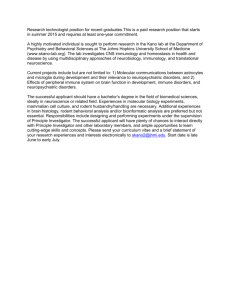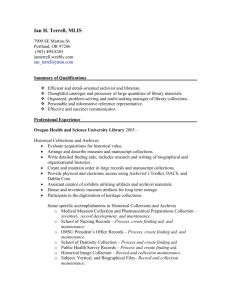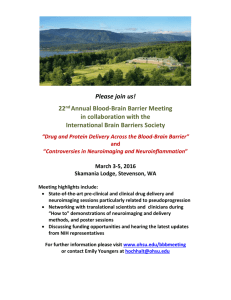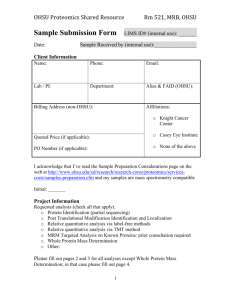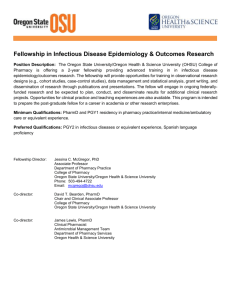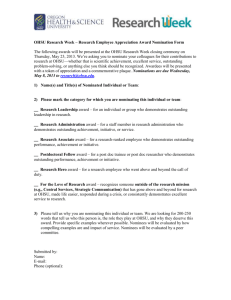Loftis, Jennifer - Portland VA Research Foundation, PVARF
advertisement
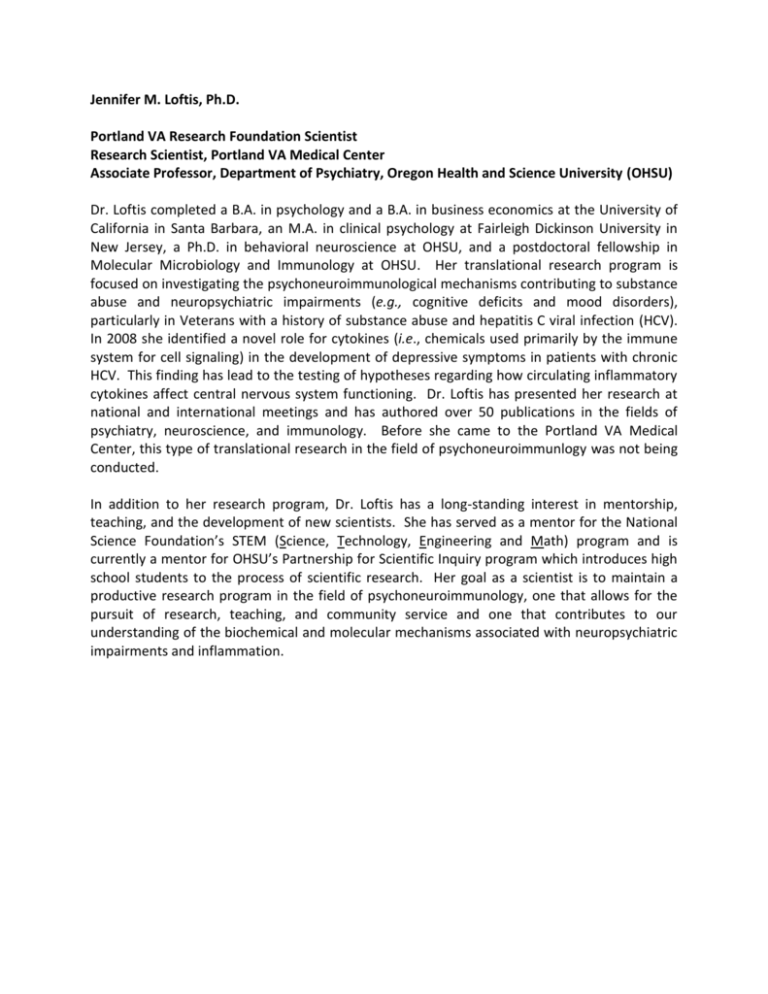
Jennifer M. Loftis, Ph.D. Portland VA Research Foundation Scientist Research Scientist, Portland VA Medical Center Associate Professor, Department of Psychiatry, Oregon Health and Science University (OHSU) Dr. Loftis completed a B.A. in psychology and a B.A. in business economics at the University of California in Santa Barbara, an M.A. in clinical psychology at Fairleigh Dickinson University in New Jersey, a Ph.D. in behavioral neuroscience at OHSU, and a postdoctoral fellowship in Molecular Microbiology and Immunology at OHSU. Her translational research program is focused on investigating the psychoneuroimmunological mechanisms contributing to substance abuse and neuropsychiatric impairments (e.g., cognitive deficits and mood disorders), particularly in Veterans with a history of substance abuse and hepatitis C viral infection (HCV). In 2008 she identified a novel role for cytokines (i.e., chemicals used primarily by the immune system for cell signaling) in the development of depressive symptoms in patients with chronic HCV. This finding has lead to the testing of hypotheses regarding how circulating inflammatory cytokines affect central nervous system functioning. Dr. Loftis has presented her research at national and international meetings and has authored over 50 publications in the fields of psychiatry, neuroscience, and immunology. Before she came to the Portland VA Medical Center, this type of translational research in the field of psychoneuroimmunlogy was not being conducted. In addition to her research program, Dr. Loftis has a long-standing interest in mentorship, teaching, and the development of new scientists. She has served as a mentor for the National Science Foundation’s STEM (Science, Technology, Engineering and Math) program and is currently a mentor for OHSU’s Partnership for Scientific Inquiry program which introduces high school students to the process of scientific research. Her goal as a scientist is to maintain a productive research program in the field of psychoneuroimmunology, one that allows for the pursuit of research, teaching, and community service and one that contributes to our understanding of the biochemical and molecular mechanisms associated with neuropsychiatric impairments and inflammation.

